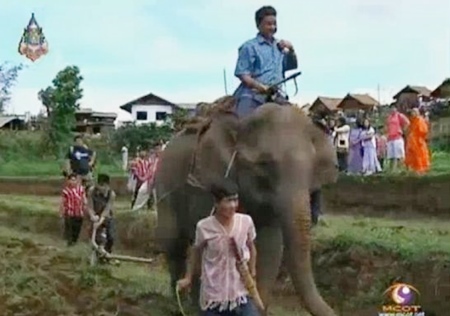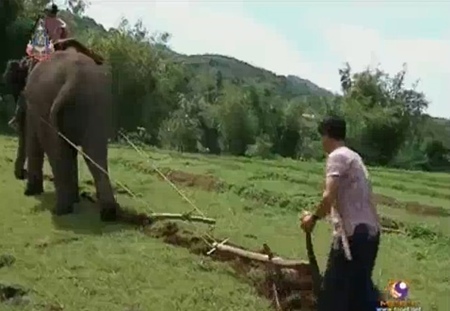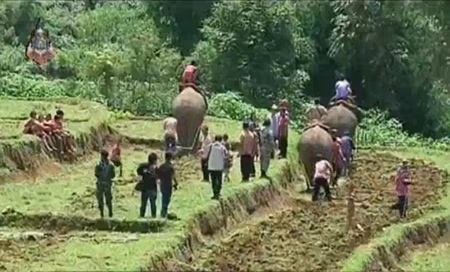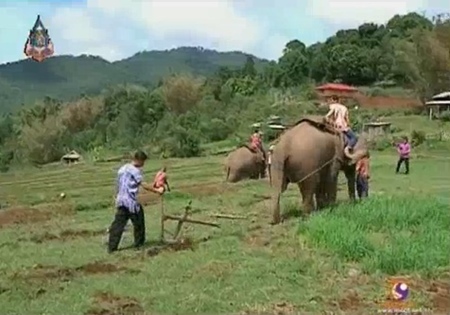Elephants in the district of Omkoi in Thailand’s northern province of Chiang Mai have different roles than pachyderms elsewhere. Their main task is to plough rice fields once Thailand enters the rainy season and when hilltribe people here, the Karen, do their rice farming in the mountains.
This year was the first time a conservation of using elephants ploughing rice event was held there to preserve this tradition in Nakien subdistrict.
A tourist visiting the event said she was surprised to see elephants working in the rice field.

“I didn’t think elephants could do such a thing. Usually we only see the cattle doing the job. But this… is something so amazing,” said the tourist.
Pachyderms in this northern area are first taught to listen to orders and to do what they are told, as well as to drag logs for about six months. They, then, will be trained to harrow the plough handle. In this process, at least two men are needed–a mahout and a plough handler.

For over 50 years, the Karen in this local area have depended on elephants to earn income, for their rice fields are in the steep hillside landscape and the soil there is quite hard. Using other animals like buffaloes consumes more time to get the work done. That is why the locals here decided to choose the giant animals due to their greater strength and ability to walk on a slope. The power of elephants is even more than that of tractors, according to a local rice farmer.

Meanwhile, Pumeechai Prasert, subdistrict chief of Nakian subdistrict, said his family has used pachyderms since his father’s generation. He said one elephant can work faster on a rice farm and help save production costs, as no fuel is needed as is the case in using tractors.
However, there are only two rice farmers left in the country depending on elephant labour.

“If you use elephant labour, it will take 4-5 days for an elephant to finish ploughing about 17 rai of farmland. I’ve always done rice farming with elephants since I was about 17,” said Nakian subdistrict chief Pumeechai.
“As time passes, elephant labour in rice farming start to disappear. There’re only tractors nowadays. So I thought if we don’t keep elephants for this purpose, they will all disappear,” Nakian Subdistrict Administrative Organization chief Supanit Rungruanglertpaisarn commented.
It may be unfamiliar for some people but the practice of elephant labour in rice farming is not only to preserve the long tradition in Omkoi district but also to promote tourism in the area as well as to demonstrate the hidden ability of Thai pachyderms.




